It doesn’t take long to recognize the charm of the small Vermont town of Poultney. Located in southwest Vermont on the New York border, Poultney has a historic downtown filled with small businesses, Victorian-style homes, and community gathering spaces. The D&H Railroad runs through the center of town and is a symbol of both Poultney’s industrial past of slate quarries and its outdoor recreation future as a trail hub. The railroad is now the D&H Rail Trail and Poultney is the home base of Slate Valley Trails, a nonprofit that manages more than 60 miles of hiking and biking trails. Poultney is also navigating recent challenges including the closure of Green Mountain College that served as the community’s economic anchor for over 150 years. In 2021, Poultney finalized its Community Action Plan as part of the Recreation Economy for Rural Communities (RERC) program. Community members also developed a Poultney Town to Trails plan as an outcome of the RERC action plan. So hosting the Inclusive Spaces Training and Workshop in Poultney was an obvious choice when SORP received a grant from the Vermont Outdoor Recreation Economic Collaborative (VOREC).
The VOREC Community Grant Program funds community projects that leverage outdoor recreation. SORP applied for and was awarded a grant in 2024 to help increase participation in outdoor recreation for all demographics. In addition to the one-day Inclusive Spaces Audit Workshop, the grant included funding for a train-the-trainer program. The purpose of the training was to support recreation managers, nonprofit program managers, volunteers, and community leaders to conduct audit workshops with their colleagues and partners.
The Training
August is back to school time for many areas so we joined in the tradition by hosting the training at the Poultney High School library. For most training participants, this was the first time they had been in a high school library in many years! The library was large and comfortable and the high school staff were warm and welcoming.
Twelve people from Vermont, New York, Massachusetts, Pennsylvania, and Oregon gathered to learn how to deliver an Inclusive Spaces Audit Workshop. The morning focused on the development of the inclusive spaces audit framework, the perspectives and lenses we bring to our work, and the history of public lands and how some places were designed to be inaccessible and exclusive. Participants shared examples from their own experiences of how outdoor spaces can feel unwelcoming to different audiences.
After lunch, we practiced techniques to encourage dialogue and methods to help people feel comfortable sharing sometimes vulnerable information with each other. Small groups showed their creativity by using drawings and a skit to demonstrate the commonalities in how they facilitate conversations.
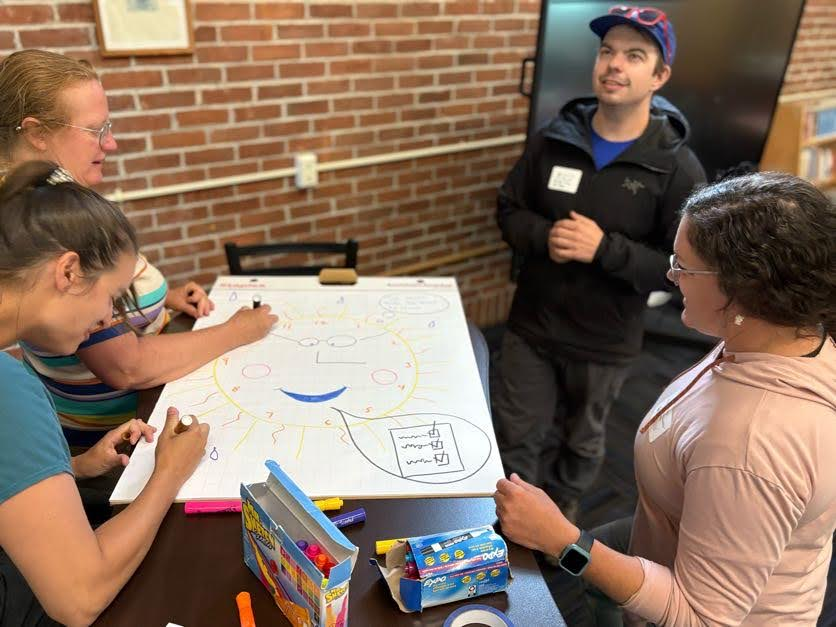
Then it was time to get on a trail! Jeff Alexander and his team at Vermont Adaptive brought adaptive and non-adaptive mountain bikes for participants to try. After discussing the different types of adaptive bikes and how they are fitted to individuals’ needs, we rode the D&H Rail Trail to the New York border (1.5 miles). Along the way, we talked about how perspective shifts based on how you experience the world. Hand-pedaling a bike while on your chest and stomach is very different from sitting upright.
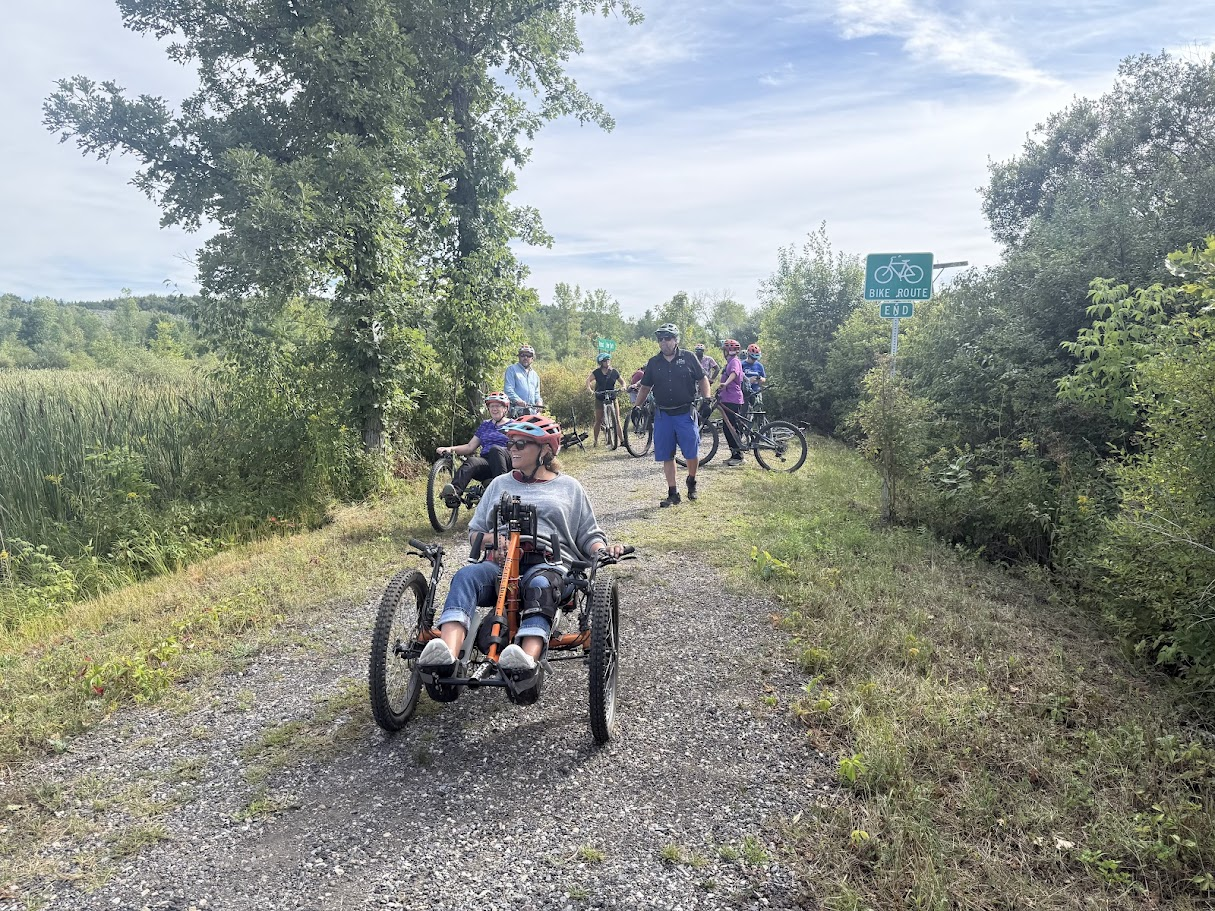
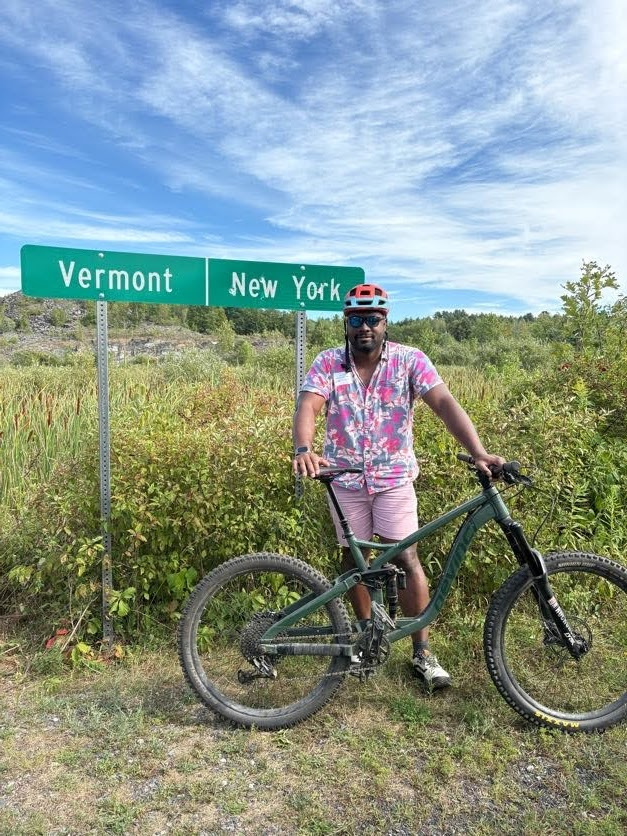
The day ended with an informal gathering at the Poultney Pub located right on the trail. Von Trapp Brewing created a Vermont Adaptive beer and graciously bought the first round of drinks for us. Participants got to know each other better and hit refresh in preparation for the Audit Workshop.
The Audit Workshop
On Day 2, another 16 people joined us for the Inclusive Spaces Audit Workshop. Gerry James of Outdoor Recreation Design Lab created the inclusive spaces audit based on years of research and empirical testing with outdoor spaces and communities in Tennessee and Kentucky. The audit consists of two tools: a pre-observation data gathering worksheet that examines policies, practices, and images for an outdoor space and the field observation worksheet that is used to document observations about how people interact with an outdoor space. Outdoor spaces include trails, trailheads, campgrounds, marinas, and playgrounds as well as community infrastructure that support access to the outdoors such as visitor centers, downtowns, gear and rental shops, and transportation hubs.
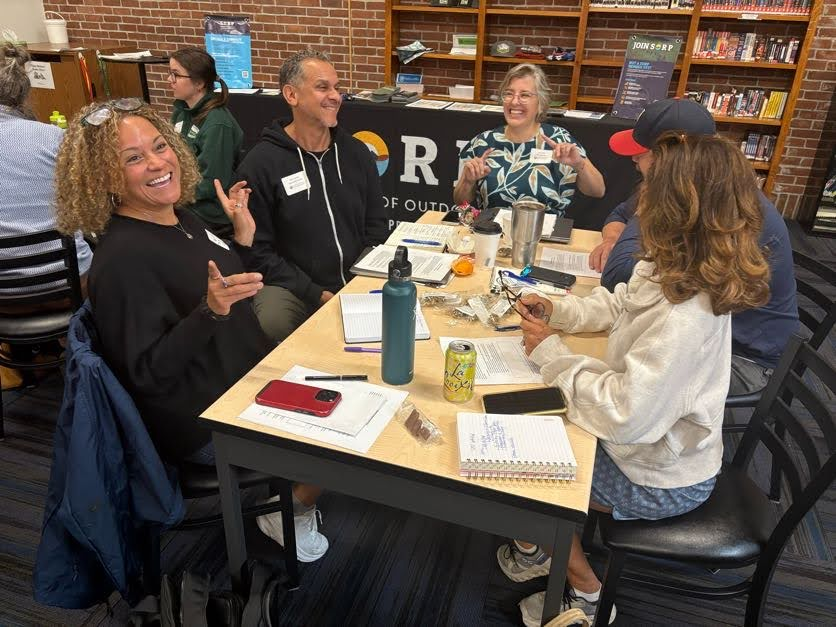
After learning about and practicing the pre-observation data gathering worksheet, participants broke into two groups to practice field observations. The first group was led by Sarah Pelkey, the Community Development Director for Poultney. Sarah showed the group outdoor gathering spots including the senior center and the village square. She also introduced them to outdoor business owners. The group discussed some of the opportunities to make Poultney more welcoming and accessible including better sidewalk connectivity, enhanced wayfinding, and places for visitors to get information.
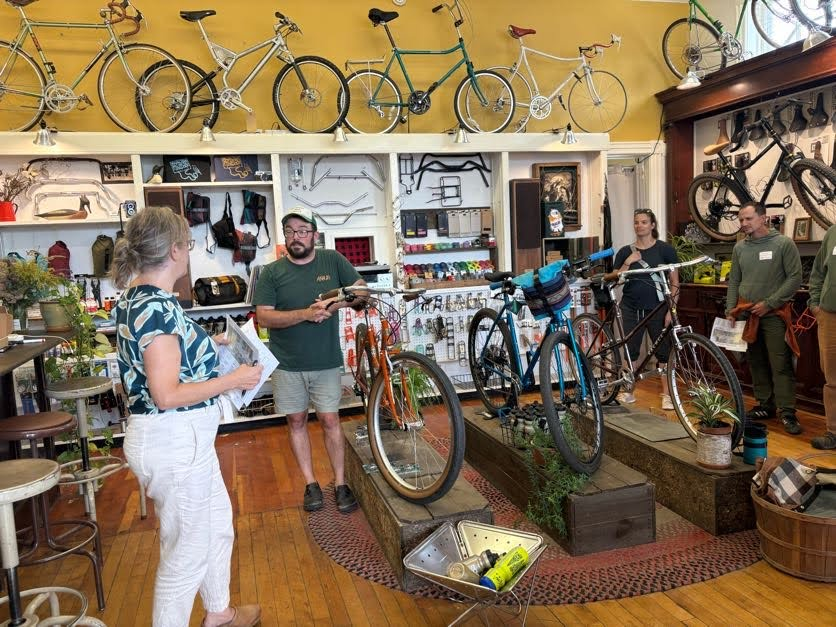
Jeff Alexander took the second group to the D&H Rail Trail. The group looked at the trail kiosk and met with xxxxx from Slate Valley Trails. They walked two blocks to the trailhead and parking area and discussed ways to improve connectivity and awareness of the trails around Poultney. Jeff also brought up the challenges of managing access to the rail trail. Gates are used to limit summer motorized use but they also make it difficult for adaptive bikes to get on the trail.
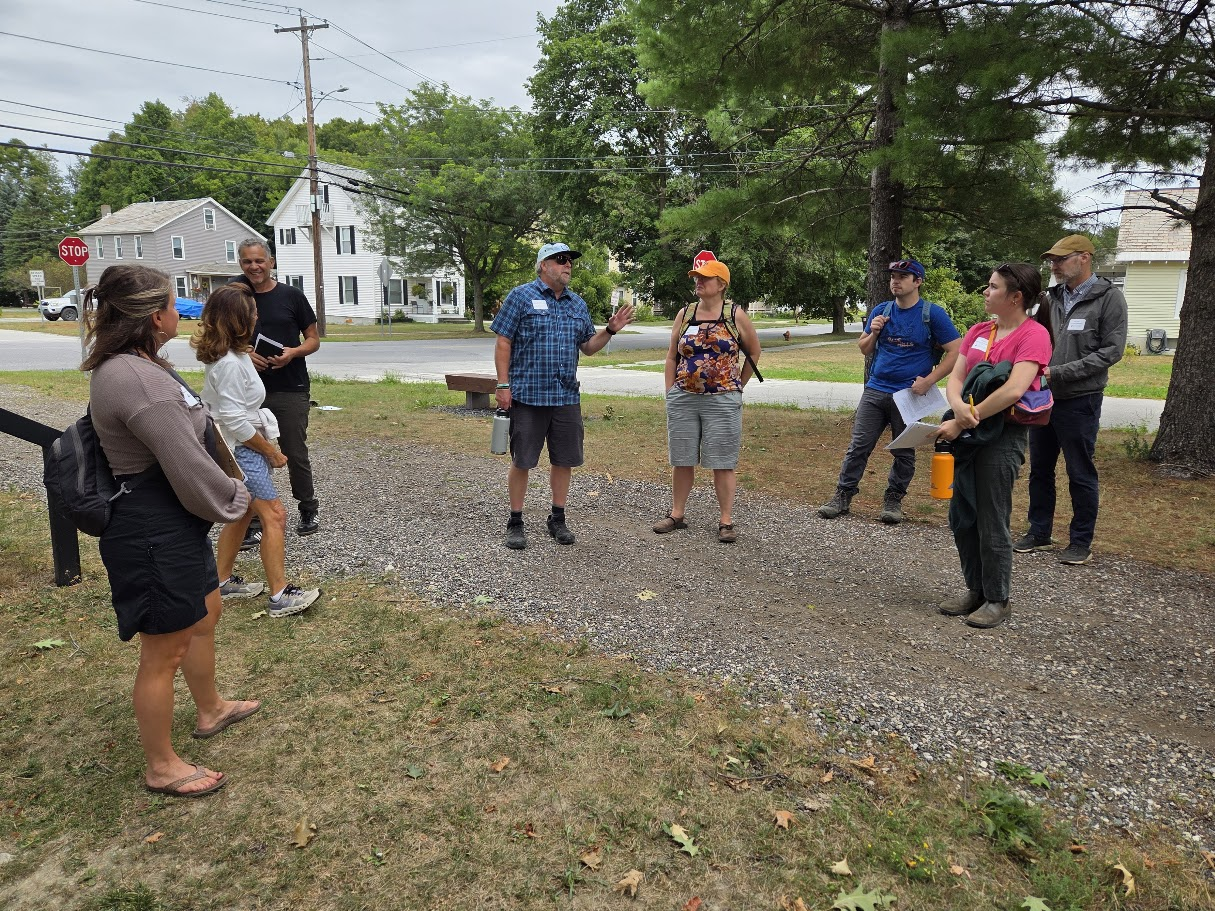
The workshop wrapped up back at the high school with a report out from each group. Participants then worked together to create an action plan based on the audit. During the closeout and reflection, attendees expressed gratitude for having a framework to talk to others about access, belonging, and inclusion in the outdoors.
Train-the Trainer Next Steps
On the last day, train-the-trainer participants convened for a half day to identify tangible strategies and resources for conducting an audit workshop. Small groups conducted mini-workshops using real-world scenarios. The training wrapped up with a discussion of the workbook resources for conducting an inclusive spaces audit as well as an extensive list of webinars, podcasts, and research for further learning.
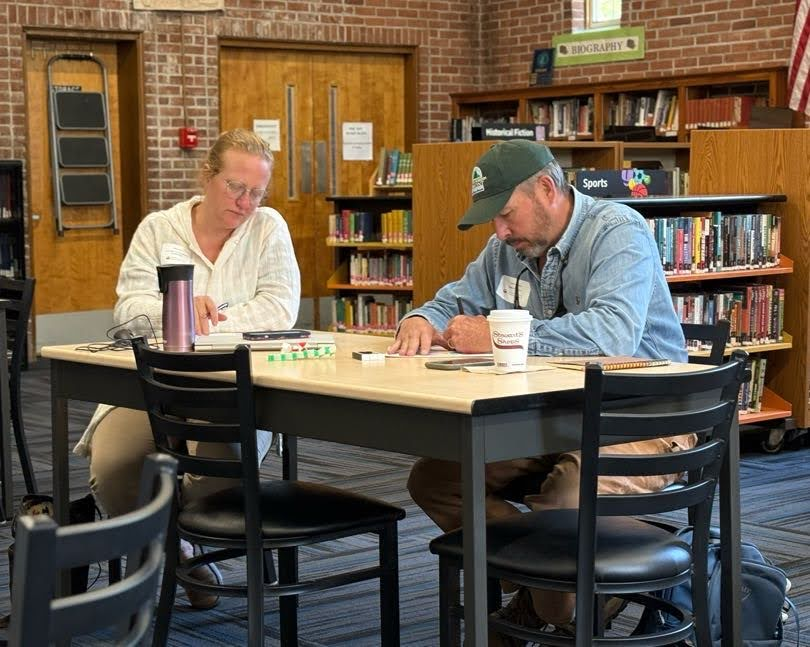
Training participants will continue working together as a cohort for the next year. We will host quarterly meetings with the cohort to share best practices, discuss challenges, and support each other in conducting audit workshops.
Interested in hosting an Inclusive Spaces Audit Workshop? Contact Rachel Franchina to help you find a trainer near you!